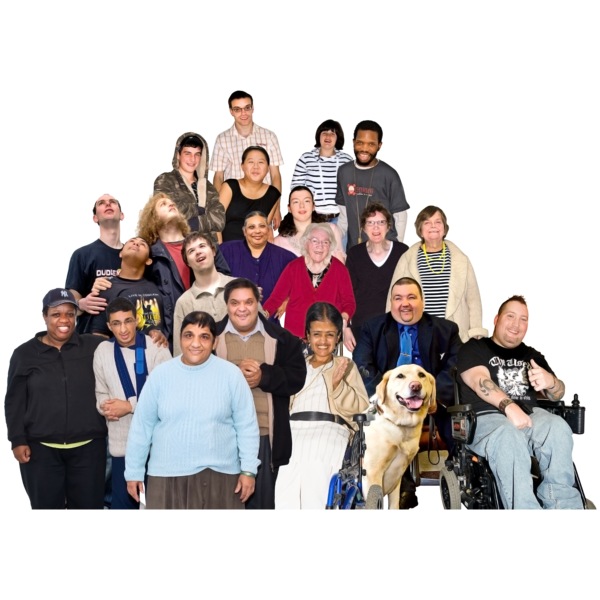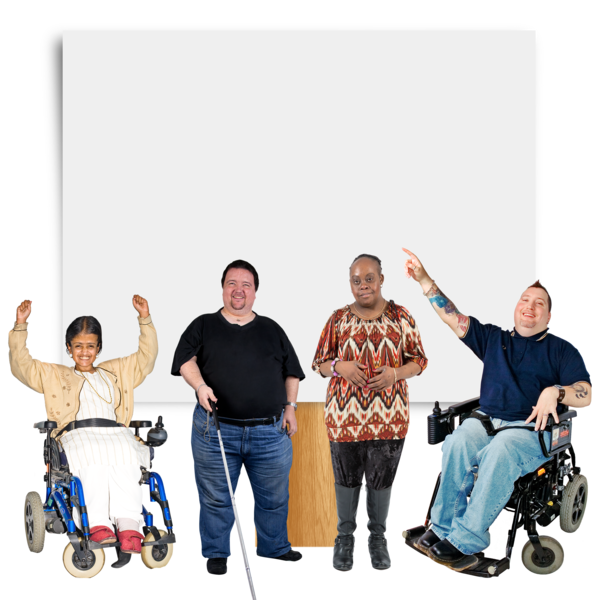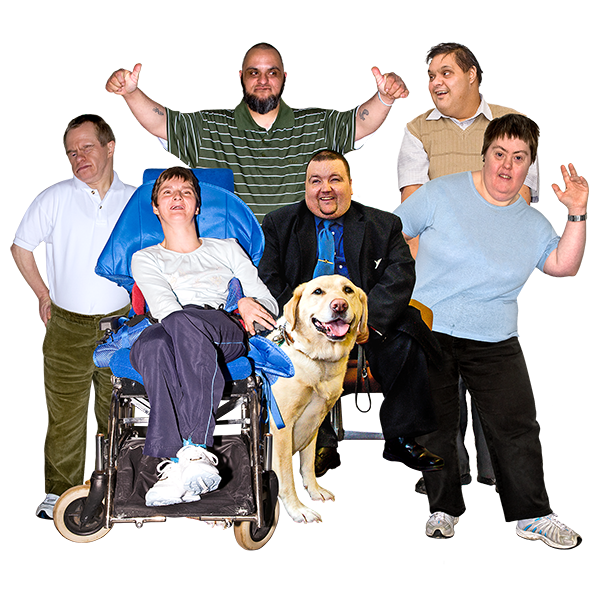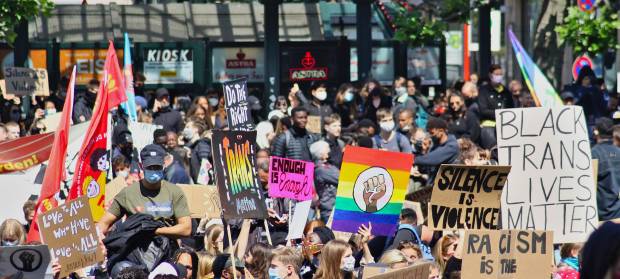It has been two years since the public murder of George Floyd sparked worldwide protest, condemnation, and reflection. Institutions, businesses, and organisations all lined up to
pledge
 A pledge is when someone promises to do something.
and commit to understand and remove the barriers to racial equalities, some of which were already highlighted by the pandemic.
A pledge is when someone promises to do something.
and commit to understand and remove the barriers to racial equalities, some of which were already highlighted by the pandemic.
The consensus seemed to be that ‘change’ was urgently needed – but what has changed since George uttered those fateful words: “I can’t breathe”?
George’s killer, Derek Chauvin, was convicted; a very rare outcome for the killing of a Black man by a white police officer. Was this the watershed moment we have been waiting for, or would it be just another hiatus from “business as usual”?
Organisations and businesses globally are having conversations and taking positive action to address inequalities, as well as publicly supporting and celebrating
diversity
 Diversity means people from all different cultures and backgrounds.
events such Black History Month, Stephen Lawrence Day, Pride Month, Ramadan, and Eid. We are yet to see whether these activities are just examples of performative
activism
Diversity means people from all different cultures and backgrounds.
events such Black History Month, Stephen Lawrence Day, Pride Month, Ramadan, and Eid. We are yet to see whether these activities are just examples of performative
activism
 Activism is taking action to make change. Going to a
campaign
Activism is taking action to make change. Going to a
campaign
 A campaign is when people work together to try to change something.
event with others, writing letters and speaking up are all ways to take action.
and continuing the cycle of inaction, or if they are a real commitment for sustainable change.
A campaign is when people work together to try to change something.
event with others, writing letters and speaking up are all ways to take action.
and continuing the cycle of inaction, or if they are a real commitment for sustainable change.
Mencap is determined to break that cycle of inaction, starting its own Equity, Diversity and Inclusion journey, with a clear vision and focus on the need to understand and learn about institutional and systemic
discrimination
 Discrimination is when someone is treated differently (usually in a bad way) because of things like their disability or their
religion
Discrimination is when someone is treated differently (usually in a bad way) because of things like their disability or their
religion
 Religion is to do with the things you believe about the world. For example you may believe there is a god or something else. Examples of religions are Christianity, Hinduism, Islam and Judaism.
.
, and what that looks like both in Mencap and in wider society.
Religion is to do with the things you believe about the world. For example you may believe there is a god or something else. Examples of religions are Christianity, Hinduism, Islam and Judaism.
.
, and what that looks like both in Mencap and in wider society.
We accept that although Mencap has worked alongside people with a
learning disability
 A learning disability is to do with the way someone's brain works. It makes it harder for someone to learn, understand or do things.
and their families to prioritise and tackle inequalities they experience, Mencap is still adapting, learning, and making changes to ensure other forms of inequalities that exist are considered.
A learning disability is to do with the way someone's brain works. It makes it harder for someone to learn, understand or do things.
and their families to prioritise and tackle inequalities they experience, Mencap is still adapting, learning, and making changes to ensure other forms of inequalities that exist are considered.
Equity is now embedded in our Big Plan and our recently launched EDI
Strategy
 A strategy is a plan to show what an organisation, or a person, wants to do and how they are going to do it.
, and we are focused on achieving
equality
A strategy is a plan to show what an organisation, or a person, wants to do and how they are going to do it.
, and we are focused on achieving
equality
 Equality is when everyone is treated fairly.
through equity. This means acknowledging the existence of current and historical inequalities, internally and in wider society. Anti-racist practice is specifically embedded in all EDI activities to address intersectionality.
Equality is when everyone is treated fairly.
through equity. This means acknowledging the existence of current and historical inequalities, internally and in wider society. Anti-racist practice is specifically embedded in all EDI activities to address intersectionality.
We understand that change is only possible where policy, processes or programmes are accompanied by proactive positive action and changes in attitudes and behaviours.
Since the roll out of our EDI vision we have:
- Signed up to Business in the
Community
 A community is the people and places in an area.
’s (BITC) Race at Work
charter
A community is the people and places in an area.
’s (BITC) Race at Work
charter
 A charter is a piece of paper that says how things should be done.
and ACEVO Leadership Principles
A charter is a piece of paper that says how things should be done.
and ACEVO Leadership Principles - Committed to increase representation of B.A.M.E colleagues in leadership roles.
- Developed and launched mutual mentoring and leadership sponsorship programme - focused on breaking down barriers and connecting voices from different background and races
- Introduced
mandatory
 Mandatory means that something must be done.
anti racist training for all staff, a digital online module called “Let’s talk about
racism
Mandatory means that something must be done.
anti racist training for all staff, a digital online module called “Let’s talk about
racism
 Racism is when people are treated in a bad way because of things like their culture and background, or the colour of their skin.
”.
Racism is when people are treated in a bad way because of things like their culture and background, or the colour of their skin.
”. - Developed and delivered our EDI Leadership learning and development programme – mandatory for all members of our leadership team
- All departments now set EDI objectives and action plans
- Committed to report on and publish our Ethnicity pay gap going forward
- Developed and tested an equitable recruitment process – increasing applications, appointments and representation of colleagues from diverse backgrounds
- Coordinated external focus group sessions with people with learning disabilities from B.A.M.E communities and organisations representing their needs.
- Launch ‘affinity’ EDI network groups for colleagues including a group for colleagues from B.A.M.E communities.
So what’s changed in the last two years?
A
survey
 A survey is when someone asks you to answer some questions.
undertaken by the Guardian (April 2022) found that workplace inclusion drives have almost trebled since the Black Lives Matter protests, with increased numbers of organisations introducing EDI teams and initiatives; some going so far as to signing up to anti-racist charters.
A survey is when someone asks you to answer some questions.
undertaken by the Guardian (April 2022) found that workplace inclusion drives have almost trebled since the Black Lives Matter protests, with increased numbers of organisations introducing EDI teams and initiatives; some going so far as to signing up to anti-racist charters.
We have also seen the visible increase of diverse groups across the media.
Yet, this could feel patronising and superficial, when racism still prevails across the UK, whether directly or through micro aggressions, institutional or systematic.
Other organisations and institutions have been proactive in demonstrating their support for anti-racism, but experienced the inevitable resistance and backlash.
Football teams “took the knee” but this was not embraced by all their supporters. Three Black British footballers endured blatant horrendous racism from their own fans after missing penalties in the final of the Euros. Lewis Hamilton also received similar abuse just hours after winning the British Grand Prix.
The persistent narrative is that change takes time, patience is needed, we must continue to endure, despite irrefutable evidence of institutional and systemic racism.
In the U.K. hate crimes have risen by 9%. Racially motivated crimes increased by 12% over the year ending in March 2021, amid Black Lives Matter protests and a backlash from far-right activists. Race is a factor in more than 7 out of 10 hate crimes recorded in England and Wales.
In 2021 use of ‘stop and search’ rose by 24% in England and Wales in a year. Black people were seven times more likely to be stopped than white people, yet the police are unable to explain the ongoing disparity.
Yet the government commissioned Cred report, ignored the reality of 75% of Black citizens who experience discrimination in their everyday lives. The Cred report sought to rewrite history and deny the presence of institutional racism in the U.K. but was widely criticised by individuals, organisations and even the United Nations who labelled the report as an attempt to “normalise white supremacy.”
To reinforce their argument, the government has refused to introduce legislation to make ethnicity pay gap reporting mandatory. An inference can be taken that if they simply ignore the evidence, then no action is required.
This is a society where a trauma is accepted as a right of passage for people from B.A.M.E. communities. A society where;
- A Black schoolgirl can be strip searched by the police in her school where she would have expected to be safe.
- Policemen taking selfies of the crime scene where two Black women were murdered.
- Police tell a Black mother told ‘we-cant-find-your-son-if-you-cant’, and he was later found dead.
- People in workplaces across the country have, and are leaving their jobs because of institutional racism - the organisation failing to proactively support them but would rather downplay or deny racism.
- Most recently, the revelation of racial discrimination in the Cabinet Office and Ministry of Justice have led to six figure settlements linked to “systemic issues” within the country’s government apparatus.
In the two years since George Floyd’s death and media efforts to show that “Black Lives Matter” we’re already seeing history repeat itself with the public inquiry into the death of Sheku Bayoh in our headlines, showing police brutality and structural racism remains evident in the UK.
Mencap is resolute in its conviction to become an anti-racist organisation and will progress this journey through a dedicated anti-racist plan.
This places the onus on individuals and leaders of organisations to proactively and prominently ensure that all staff (particularly white colleagues) recognise what racism is; fully embrace the widespread existence of institutional, structural and systemic racism and understand the concepts of white privilege/fragility/gaze etc.
It is only when that happens that they will genuinely be able to join their B.A.M.E. colleagues as allies in the fight against racism and progress can be meaningful and sustained.

 Lorraine Robinson
Lorraine Robinson